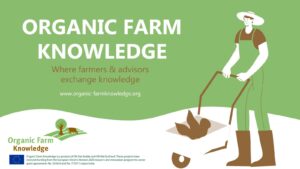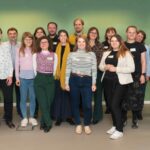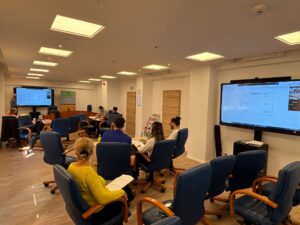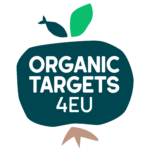
Promoting a sustainable future
OrganicTargets4EU aims to reach 25% of agricultural land
under organic farming and a significant increase in organic aquaculture by 2030.
The European commission recognises the key role of organic farming (and aquaculture) in the transition towards a more healthy and sustainable food system and it sets ambitious targets for organic production in the Farm-to-Fork and Biodiversity Strategies. To reach these goals, it must be considered that the distribution of organic production across EU Member States is currently highly variable.
The 42-month project will address the needs for a balanced upscaling of production and consumption to redefine and transform the current farm structures. This huge transformation needs to be supported by ambitious research and innovation, strong advisory services, knowledge exchange and training opportunities for all organic operators and related professionals.
Project name: OrganicTargets4EU
Project ID 101060368
Call: HORIZON-CL6-2021-FARM2FORK-01
Overall objective and specific needs addressed by the project
With the European Green Deal, the Farm-to-Fork Strategy and the Biodiversity Strategy, the EU has set targets of reaching at least 25% of the EU’s agricultural land under organic farming by 2030 and significantly increasing organic aquaculture (hereafter referred to as “the organic F2F targets”). In 2019, the share of organic farmland was 8.5% in the EU-271, requiring a trebling of the area to meet the target. This means current organic area needs to triple within 11 years. Organic aquaculture represented 2% of total aquaculture production (based on tonnes live weight) in 2019. There is no concrete F2F target for organic aquaculture, but a similar 3x growth rate as for farmland to a 5% share would require enormous efforts. Reaching these ambitious goals demands a balanced upscaling of both production and consumption, implying a huge transformation in farm structures and value chains. This transformation needs to be supported by ambitious R&I, strong advisory services, knowledge exchange and training opportunities for all organic operators and related professionals.
The overall objective of OrganicTargets4EU is to support the achievement of the organic F2F targets. Based on an assessment of key drivers and lock-ins affecting the development of the organic sector, the project will set-up a multi-actor process to create a range of possible scenarios for achieving the targets.
The project is structured into two strands, which run from start to finish:
Strand 1-Production & Markets (P&M): OrganicTargets4EU will analyse where increases in organic farmland can be achieved, and the (socio-economic) impacts of these increases at the level of primary production, value chains and markets, as well as on the related F2F targets of reducing fertiliser, pesticide and antibiotic use. The project will also provide evidence on the mechanisms that can drive demand for organic food and the impact of changing diets and food waste reduction on mitigating the reduced yields from organic production.
Strand 2-Knowledge & Innovation (K&I): OrganicTargets4EU will work towards an innovation ecosystem fit for achieving the organic F2F targets, recognising that the scale of the expansion envisaged will require a transformational approach to knowledge and innovation systems for agriculture and aquaculture. It will identify knowledge gaps and opportunities to strengthen advisory services. It will build capacity and stimulate exchange of scientific and practice-oriented knowledge. Building on the CORE Organic network (CO) of funding bodies, it will increase and coordinate R&I investment for organic.
OrganicTargets4EU will facilitate a multi-actor policy dialogue to assess the feasibility of the organic F2F targets and develop policy recommendations for the CAP, the EU organic regulation, EU and national organic action plans, Horizon Europe, and horizontal legislation on inputs, public procurement etc., covering the full spectrum of the project themes. The policy recommendations will cover short-term options within existing policy frameworks (up to 2027), opportunities for policy developments in the next policy reform from 2028 onwards, and a horizon scanning for development post 2030 for the whole next multi-annual financial framework to 2034.
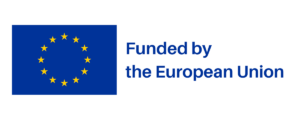
Funded by the European Union. Views and opinions expressed are however those of the author(s) only and do not necessarily reflect those of the European Union or European Research Executive Agency (REA). Neither the European Union nor the granting authority can be held responsible for them.

